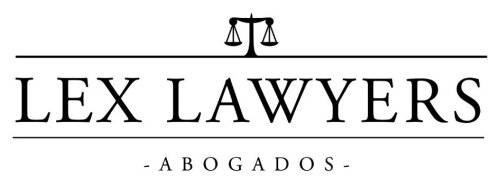Best Employment Benefits & Executive Compensation Lawyers in Chile
Share your needs with us, get contacted by law firms.
Free. Takes 2 min.
Or refine your search by selecting a city:
List of the best lawyers in Chile
About Employment Benefits & Executive Compensation Law in Chile
Employment benefits and executive compensation law in Chile encompasses a range of regulations that govern the rights and obligations of employers and employees regarding compensation, benefits, incentives, and other forms of remuneration. These laws are designed to ensure fair practices, promote employee welfare, and align organizational goals with employee satisfaction and motivation. Legislation in this field includes mandates on minimum salary, pension contributions, health insurance, bonuses, and severance pay, among others.
Why You May Need a Lawyer
There are several situations where legal assistance may be necessary in the realm of employment benefits and executive compensation. These include disputes over bonus payments, terminations involving severance packages, compliance with statutory benefits, and issues related to the misclassification of employees. Additionally, employers frequently need legal advice to design compensation packages that comply with local laws while being competitive in attracting top talent. An employment lawyer can help navigate the complexities of the law to resolve disputes or ensure compliance with regulations.
Local Laws Overview
In Chile, employment benefits and executive compensation are governed by various laws and regulations. Some of the key legal frameworks include:
- Labour Code: Establishes minimum standards for employment conditions, including wages, working hours, and mandatory benefits.
- Minimum Wage Law: Defines the minimum salary every employee must earn, revised periodically by the government.
- Pension System (AFP): Requires mandatory contributions to private pension funds as part of social security benefits.
- Health Insurance: Mandates contributions to health insurance through the public (FONASA) or private (ISAPRE) systems.
- Severance Payments: Legislates compensation for dismissal in specific situations, contingent on tenure and cause of termination.
- Tax Regulations: Governs the tax treatment of various types of compensation and benefits, including stock options and bonuses.
Frequently Asked Questions
What is the minimum wage in Chile?
The minimum wage in Chile is subject to change and is periodically updated by the government. It is important for both employers and employees to stay informed of current regulations.
Are employers required to provide bonuses?
While not all bonuses are mandatory, certain sectors may have specific requirements or collective agreements necessitating bonus payments. Employers must adhere to these agreements where applicable.
What are the rules regarding overtime pay?
Overtime is generally paid at a rate of 1.5 times the regular hourly wage. There are also limitations on the maximum number of overtime hours that can be worked per week.
How does the severance payment system work?
Severance pay is calculated based on years of service and the employee's last drawn salary. Specifics can vary depending on the reason for termination and employment contract terms.
What kind of pension contributions are mandatory?
Employees and employers are required to contribute to the pension system, with deductions made from salaries to deposit in individual pension fund accounts managed by AFPs.
How are health insurance contributions structured?
Employees contribute approximately 7% of their earnings towards health insurance, which can be registered with either the public system (FONASA) or a private health insurance provider (ISAPRE).
Is there provision for maternity and paternity leave?
Yes, Chilean law provides for maternity leave and paternity leave, with varying terms and durations. Employers must comply with these legal requirements.
Are there specific tax implications for executive compensation?
Yes, executive compensation often involves stock options, bonuses, and other benefits which have distinct tax treatments. Employers must structure these packages appropriately to comply with tax laws.
What is considered discriminatory in terms of compensation?
Discriminatory practices in compensation include unequal pay based on gender, race, age, or other unrelated factors. Lawsuits can arise if an employer is found to engage in such practices.
What rights do employees have upon termination?
Employees are entitled to certain rights upon termination, including severance pay, and in some cases, the right to challenge an unjust dismissal. Legal advice can clarify these rights.
Additional Resources
For further assistance regarding employment benefits and executive compensation, consider reaching out to the following bodies:
- Ministry of Labor and Social Welfare: Offers guidelines and information regarding labor laws in Chile.
- Superintendency of Pensions: Governs pension funds and can provide information on contribution requirements.
- Chilean Labour Courts: Handle disputes and enforcement of employment laws.
- Labor Unions: Can offer support and information on collective agreements and employee rights.
Next Steps
If you believe you need legal assistance concerning employment benefits and executive compensation, it is advisable to consult with a lawyer who specializes in labor law. They can provide tailored legal advice and representation as necessary. Start by gathering relevant documents such as contracts, pay stubs, and correspondence with your employer, and then arrange a consultation to discuss your specific situation. A legal expert can help you understand your rights, negotiate settlements, or represent you in court if needed.
Lawzana helps you find the best lawyers and law firms in Chile through a curated and pre-screened list of qualified legal professionals. Our platform offers rankings and detailed profiles of attorneys and law firms, allowing you to compare based on practice areas, including Employment Benefits & Executive Compensation, experience, and client feedback.
Each profile includes a description of the firm's areas of practice, client reviews, team members and partners, year of establishment, spoken languages, office locations, contact information, social media presence, and any published articles or resources. Most firms on our platform speak English and are experienced in both local and international legal matters.
Get a quote from top-rated law firms in Chile — quickly, securely, and without unnecessary hassle.
Disclaimer:
The information provided on this page is for general informational purposes only and does not constitute legal advice. While we strive to ensure the accuracy and relevance of the content, legal information may change over time, and interpretations of the law can vary. You should always consult with a qualified legal professional for advice specific to your situation.
We disclaim all liability for actions taken or not taken based on the content of this page. If you believe any information is incorrect or outdated, please contact us, and we will review and update it where appropriate.
Browse employment benefits & executive compensation law firms by city in Chile
Refine your search by selecting a city.














